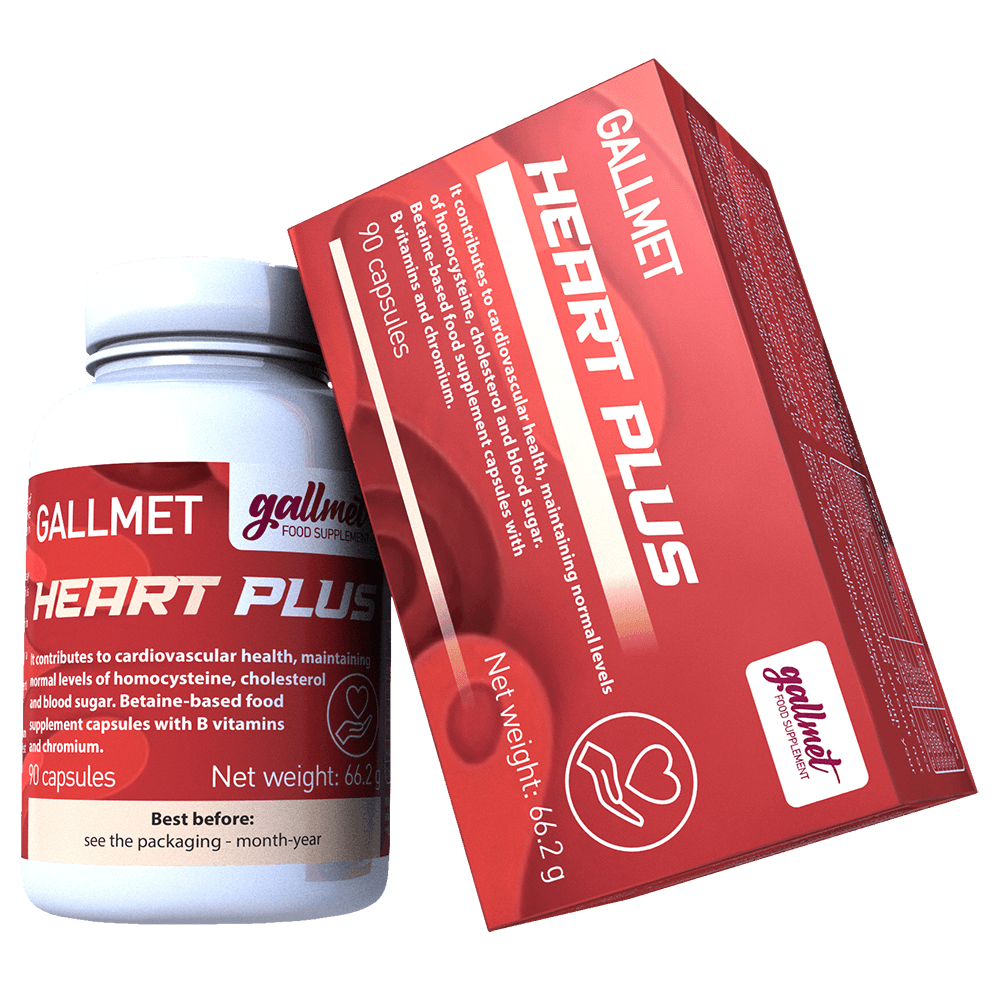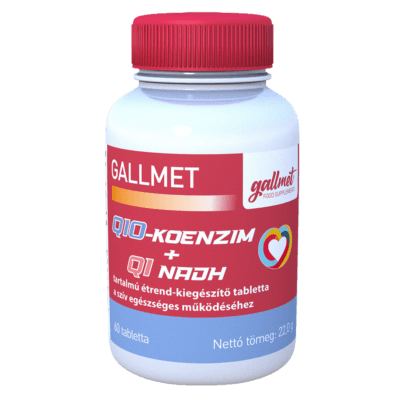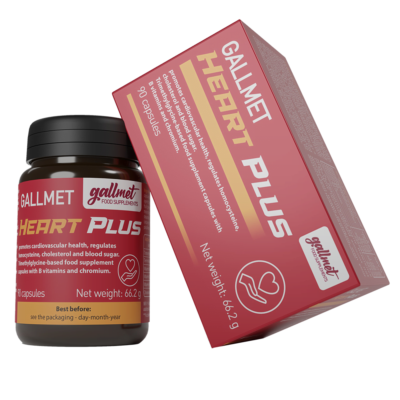B9 - Less often heard of, but also effective in protecting the brain and heart

Folate, also known as vitamin B9, doesn't get as much attention as other vitamins, even though it is involved in basic bodily functions such as DNA production and cell division.
This vitamin can be obtained naturally from some foods, but is also available in supplements and fortified foods. Its synthetic form is called folic acid. Read more about the difference between the two here.
Lack of folate in the body is most often associated with fatigue and unexplained weakness. This state of deficiency puts pregnant women, infants, children, people with liver disease and celiac disease, and people taking certain medications such as contraceptives, a chemotherapy drug called methotrexate, or metformin to help control blood sugar levels, at increased risk.
Now let's see in more detail why folate is so important for the human body:
Folate lowers blood pressure
One study has shown that folate, when taken properly, lowers blood pressure and reduces the risk of cardiovascular disease. This effect is linked to the breakdown of proteins produces an amino acid called homocysteine, which can harden arteries, increasing the risk of heart attack and stroke. But folate reduces homocysteine levels.
Folate reduces the risk of macular degeneration
The cause of age-related macular degeneration is not yet fully understood. Doctors believe that in addition to inflammation and oxidative stress, elevated levels of homocysteine may be involved in the development of the condition that leads to permanent vision loss. One study has shown that folic acid intake can reduce the risk of macular degeneration by up to 40 per cent.
Vitamin B9 may prevent the development of Alzheimer's disease
Folate may have positive effects on brain health, and a recent study suggests it may also have a preventive role in the development of Alzheimer's disease. At least this is suggested by the fact that in the studies, folic acid levels were lower in Alzheimer's patients compared to those without neurodegenerative diseases.
Folate supports healthy embryo development
Folate is essential for the nervous system changes that take place in the womb. It closes the neural tube and contributes to the development of the fetus' brain, skull and spinal cord. During the first few months of pregnancy, the foetus may develop neural tube defects (NTDs) - especially if it has low levels of folate and vitamin B12.
Folate intake
The recommended daily intake of folate is 250 micrograms, which is increased to 400 micrograms during pregnancy.
The following foods contain the most folate:
- bananas
- egg
- lenses
- Brussels sprouts
- asparagus
- spinach
- avocado
- black beans
- beetroot
- orange
- broccoli
- nuts and seeds
- edamame beans
Source: sciencedaily.com
GALLMET HEART PLUS capsules contain folate (vitamin B9), betaine, vitamins B6 and B12 in amounts that reduce elevated blood homocysteine levels, contributing to normal heart and vascular function, which can maintain heart and circulatory health.💊
TRY GALLMET HEART PLUS CAPSULES NOW AT A SPECIAL INTRODUCTORY PRICE!
Click on the [print-me] icon to print the page








